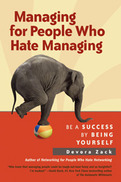2013
We still face the challenge of fostering ownership and accountability throughout our organizations. Despite all the evidence calling for profound change, most organizations still rely on patriarchy and control as their core form of governance. The result is that they stifle initiative and spirit and alienate people from the work they do. This in the face of an increasing need to find ways to be responsive to customers and the wider community.
Peter Block insists that what is required is a dramatic shift in how we distribute power, privilege, and the control of money. “Stewardship,” he writes, “means giving people at the bottom and the boundaries of the organization choice over how to serve a customer, a citizen, a community. It is the willingness to be accountable for the well-being of the larger organization by operating in service, rather than in control, of those around us.”
Block has revised and updated the book throughout, including a new introduction addressing what has changed—and what hasn't—in the twenty years since the book was published and a new chapter on applying stewardship to the common good of the wider community. He covers both the theory of stewardship (in particular how it ameliorates the shortcomings of traditional leadership) and the practice (how it transforms every function and department for the better). And he offers tactical advice as well on gearing up to implement these reforms.
Shows how you can reverse your secret hatred of managing by finding a style that fits your personality and capitalizes on your natural strengths.
Professional success, more often than not, means becoming a manager. Yet nobody prepared you for having to deal with messy tidbits like emotions, conflicts, and personalities—all while achieving ever-greater goals and meeting ever-looming deadlines. Not exactly what you had in mind, is it?Don't panic. Devora Zack has the tools to help you succeed and even thrive as a manager. Drawing on the Myers-Briggs Type Indicator, Zack introduces two primary management styles—thinkers and feelers—and guides you in developing a management style that fits who you really are.
She takes you through a host of potentially difficult situations, showing how this new way of understanding yourself and others makes managing less of a stumble in the dark and more of a walk in the park. Her enlightening examples, helpful exercises, and lifesaving tips make this book the new go-to guide for all those managers looking to love their jobs again.
-
By the author of Networking for People Who Hate Networking
-
Shows how you can reverse your secret hatred of managing by finding a style that fits your personality and capitalizes on your natural strengths
-
Packed with a self-assessment, real-world examples, field-tested tips, and practical guidelines
You're good at your job and, after years of service and dedication, you finally get that coveted promotion. Congratulations! But there's a catch: instead of spending the majority of your time doing the job you lovea job you're still expected to get done, by the wayyou're now also a manager. You weren't trained for this. Nobody prepared you for having to deal with emotions and conflicts and personalities, all while trying to meet ever-greater goals and more pressing deadlines. Not exactly what you had in mind, is it?
Let's face it. It's stressful at the top. But don't worry; it doesn't have to be. Devora Zack knows exactly what you're up against, and she has the tools to help you not only succeed but possibly even enjoy that new management position. As a prominent consultant and coach who speaks to thousands of people annually, Zack is here to yetell you that the only way to maximize your success is by being yourself.
Drawing on the Myers-Briggs Type Indicator, Zack explains that, personality-wise and management-wise, we're either thinkers or feelers. Basically, thinkers lead with their heads and feelers lead with their hearts. Almost nobody's 100 percent thinker or feeler, yet most of us lean one way or the other (and Zack's handy assessment lets you figure out what kind of leader you are). Working withrather than fighting againstyour strengths is key to understanding not only how you make decisions and manage but also how people react to your decisions and respond to you.
Zack takes you through a host of potentially difficult situations, showing how this new way of seeing yourself and others makes managing less of a stumble in the dark and more of a walk in the park. Packed with verve, spunk, wit, and enlightening examples, helpful exercises, and lifesaving tips, Managing for People Who Hate Managing is the new go-to guide for managers looking to love their jobs again.
Choosing the Right Thing to Do responds to the growing need that people of all ages have for moral guidance-without moralizing. It contains a rich palette of principles and strategies, stories and examples, ideas and insights that offer real-world help for intelligently addressing the often quite troubling choices we face every day in our personal relationships, jobs, and lifestyles.
- Presents a process by which readers can make moral choices that more accurately reflect their deepest values and commitments
- Offers more than 20 questions to ask, principles to explore, and tips to follow to choose the right thing to do in any situation
- By the co-author of Repacking Your Bags: Lighten Your Load for the Rest of Your Life, which has sold more than 200,000 copies worldwide
1993
Business people need help reducing the impact of their companies on the environment. This book will help them identify what can be done, systematically set priorities, and create an action plan for implementing improvements. It will also help them sell an impact reduction program to their top management.
In contrast to the current practice of "compliance auditing," a process focused on meeting governmental regulations, this Elmwood Institute guide shows how to conduct an "eco-audit" - a complete examination of an organization in relation to its long-term ecological sustainability. Such an audit scrutinizes every aspect of the organization and its operations, including product design and manufacture, management techniques, corporate culture, and goals.
This book provides a comprehensive framework for companies that need to design their own audits. In addition, a set of thirteen checklists guide managers through the audit process, covering such topics as energy, materials, wastes, finance, marketing, transportation, and international business relations.
Business people need help reducing the impact of their companies on the environment. This book will help them identify what can be done, systematically set priorities, and create an action plan for implementing improvements. It will also help them sell an impact reduction program to their top management.
In contrast to the current practice of "compliance auditing," a process focused on meeting governmental regulations, this Elmwood Institute guide shows how to conduct an "eco-audit" - a complete examination of an organization in relation to its long-term ecological sustainability. Such an audit scrutinizes every aspect of the organization and its operations, including product design and manufacture, management techniques, corporate culture, and goals.
This book provides a comprehensive framework for companies that need to design their own audits. In addition, a set of thirteen checklists guide managers through the audit process, covering such topics as energy, materials, wastes, finance, marketing, transportation, and international business relations.
Stakeholder Theory and Organizational Ethics provides the most comprehensive, theoretical treatment of the stakeholder framework to date. Robert Phillips provides an extended defense of stakeholder theory as the preeminent theory of organizational ethics today.
- The only detailed, comprehensive treatment of stakeholder theory-the most popular framework for discussions of business ethics-currently in print
- Examines stakeholder theory from the perspective of several fields of study, including strategic management, economics, moral and political philosophy, social psychology, and environmental ethics
- Provides a means for determining who are and are not stakeholders and why-including such controversial stakeholder candidates as competitors, activists, and the natural environment
—Dean Ornish, M.D. Founder & President, Preventive Medicine Research Institute, Clinical Professor of Medicine, UCSF, Author, The Spectrum
Technology: your master, or your friend? Do you feel ruled by your smartphone and enslaved by your e-mail or social-network activities? Digital technology is making us miserable, say bestselling authors and former tech executives Vivek Wadhwa and Alex Salkever. We've become a tribe of tech addicts—and it's not entirely our fault.
Taking advantage of vulnerabilities in human brain function, tech companies entice us to overdose on technology interaction. This damages our lives, work, families, and friendships. Swipe-driven dating apps train us to evaluate people like products, diminishing our relationships. At work, we e-mail on average 77 times a day, ruining our concentration. At home, light from our screens is contributing to epidemic sleep deprivation.
But we can reclaim our lives without dismissing technology. The authors explain how to avoid getting hooked on tech and how to define and control the roles that tech is playing and could play in our lives. And they provide a guide to technological and personal tools for regaining control. This readable book turns personal observation into a handy action guide to adapting to our new reality of omnipresent technology.























